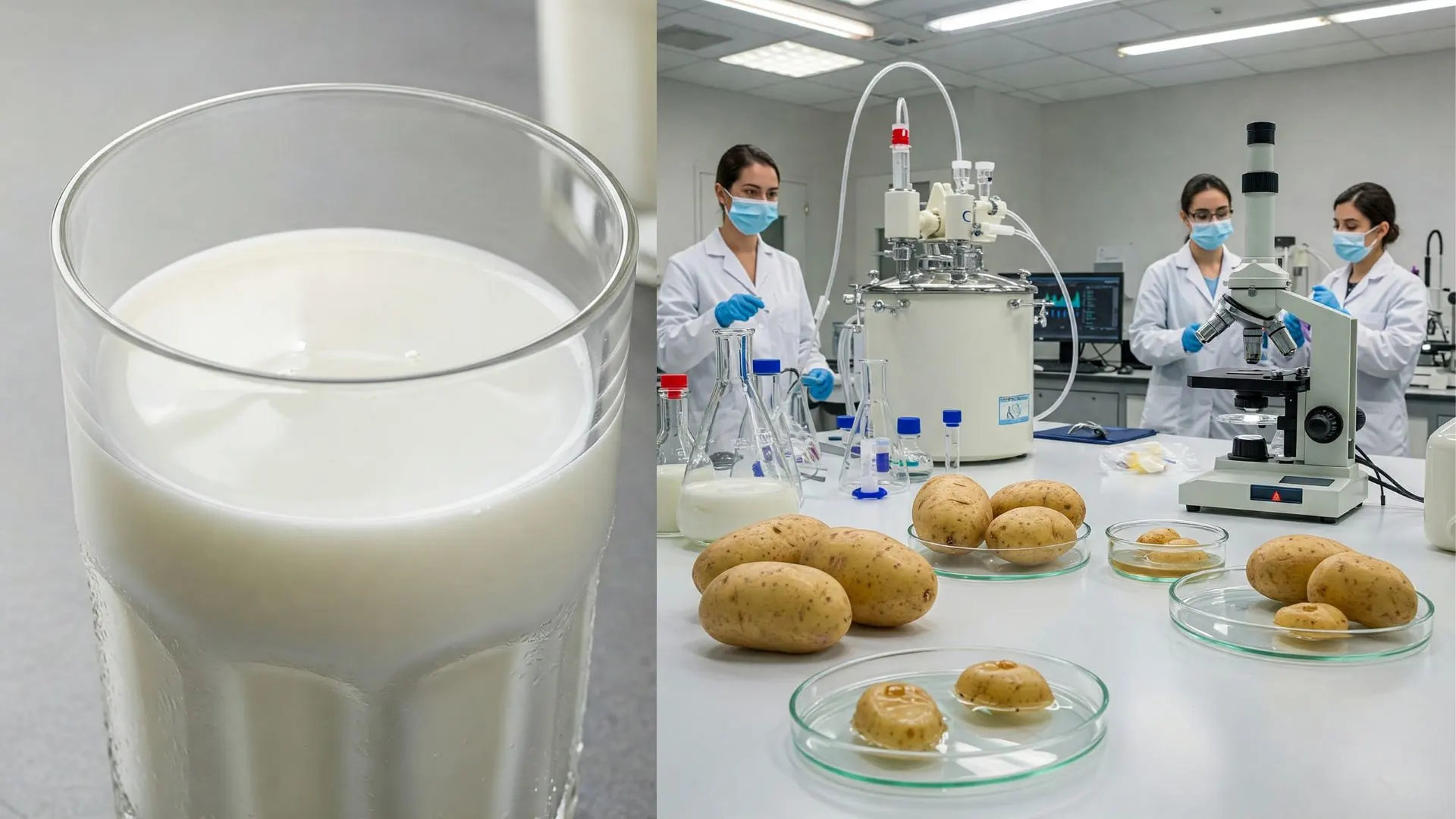In a world-first breakthrough, Israeli scientists have successfully engineered potatoes to produce authentic milk proteins – creating what may become the next revolution in sustainable dairy. This innovative ‘potato milk protein’ technology offers a truly allergen-free alternative to conventional dairy, combining the complete nutrition of cow’s milk with the environmental benefits of plant-based farming.
The plant-based milk market has exploded in recent years, with almond, oat, and soy varieties becoming kitchen staples. But now, imagine accessing real dairy proteins – without the cow. An Israeli biotech firm is making this possible by genetically modifying potatoes to express casein and whey, the crucial proteins that give milk its nutritional value and creamy texture.
This cutting-edge advancement could redefine the future of food, delivering a sustainable, ethical, and lactose-free alternative to traditional dairy that doesn’t compromise on taste, texture or nutrition. Potato milk proteins may soon offer consumers the best of both worlds: all the benefits of dairy, with none of the environmental or ethical concerns
How Does It Work?
The company employs precision fermentation and genetic engineering to insert cow DNA sequences into potato plants. These genetically modified potatoes are cultivated to yield casein and whey, the identical proteins present in cow’s milk.
Key Steps in the Process:
- Gene Insertion – Milk protein genes are isolated from cows and inserted into potato cells.
- Plant Cultivation – The bioengineered potatoes are cultivated like regular crops.
- Protein Extraction – Milk proteins are obtained and purified from the potatoes.
- Dairy Product Development – The proteins are used to develop cheese, yogurt, and other dairy-like products.
Unlike conventional plant milks (that replicate dairy through nuts or grains), this approach provides actual milk proteins, resulting in being virtually indistinguishable from traditional dairy in terms of taste and usability.

Why This Innovation Matters
Sustainable Dairy Production
- Cows are water- and land-hungry, to say nothing of the feed needed to sustain them.
- Potato milk proteins might significantly lower carbon emissions, land use, and water usage versus conventional dairy farming.
Allergen-Free & Lactose-Free’
- Ideal for lactose intolerant consumers.
- Free of typical allergens such as nuts, soy, and gluten.
Ethical & Vegan-Friendly
- No animal husbandry involved.
- Appeals to vegans and animal welfare supporters.
Same Taste & Nutrition as Real Dairy
- Unlike almond or oat milk, which do not contain dairy proteins, this technology delivers real milk texture and nutrition, such as calcium and protein.
Potential Applications
This technology has the potential to produce:
- Milk, cheese, and yogurt with identical melt-and-stretch characteristics as dairy.
- Protein-enriched plant-based foods for athletes and health-conscious consumers
- Renewable infant formula that does not depend on cow’s milk
- Challenges and Future Prospects
- The science is promising, but there are challenges
- Regulatory approval (GMO regulations differ by country).
- Consumer acceptance (some may be uneasy about bioengineered foods).
Scaling production cost-effectively
However, as demand for sustainable and ethical food continues to go up, this innovation could be the future game-changer in the dairy industry.
Is Potato Milk Protein the Next Big Thing?
With firms such as Perfect Day already employing microbial fermentation to create dairy proteins that are free from animals, this potato-based method provides another thrilling route. If it works, it could decrease the dependence on industrial agriculture while bringing genuine dairy experiences-without the cow.


Leave a Reply